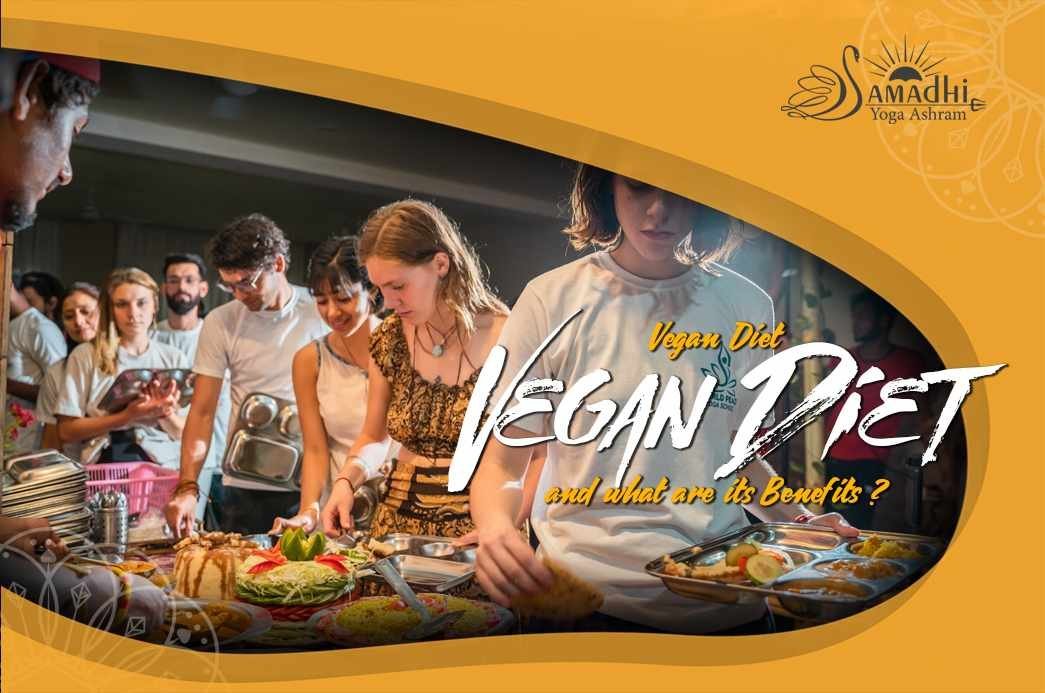Many people are opting nowadays for a vegan diet because of health and animal welfare or environmental concerns. According to some reports, about 3% of people in the USA are completely vegan, and the sale of plant-based foods is increasing.
Vegan diets are very rich in nutrients and have less saturated fats. Research proves that a vegan diet can enhance your heart’s health, give protection against cancer, and decrease the risk involved with type 2 diabetes.
But people having plant-based foods must remain aware of things like how to obtain some of the nutrients such as iron, vitamin B12, and calcium that mainly come from an omnivorous diet.
Let us closely look at what is a vegan diet, what its benefits are, and things to consider before you try it out.

What is a Vegan Diet?
A vegan diet is a diet that does not contain any animal products like meat, milk, honey, or eggs. It mainly consists of plant-based products. For many people, the vegan diet is not just a diet for them but a lifestyle. In such cases, they also avoid beauty products that have been tested using animals, avoid wearing leather and fur products, and anything that has a detrimental effect on animals.
Primary reasons why people choose veganism?
- Ethical Reasons: Many people turn vegan because of ethical reasons and believe that the production of animal products causes the animal to have a premature death or suffering. In such cases, people choose a fully vegan lifestyle in order to prevent cruelty to animals at any cost. Even though there are several other reasons people choose to have a vegan diet, prohibition of animal suffering is one of the major motivators for those turning vegans because of ethical reasons.
- Environmental Reasons: Veganism also has a good effect on the environment for those who believe that the way in which animals are mass-produced is not good for the environment. High intensity animal agriculture industry has a huge range of environmental effects because of carbon emissions as well as its role in deforestation and water pollution.
- Health Reasons: A vegan diet offers a lot of health benefits, starting from enhancing heart health to reducing the risk of diabetes and cancers while offering some of the important vitamins and nutrients needed for a long and healthy life.
What are the major benefits of a vegan diet?
Science never lies when the matter is about the health benefits of a vegan diet. On the contrary, it benefits several aspects of life in many ways.
- Improves Gut Functioning: Vegan diets offer a very rich source of micronutrients and fiber that supports your gut function. When the health of your gut is good, it assists in digestion and other such important functions like immunity, moods, hair health, and sleep. In addition, a low amount of Sulphur in plant-based proteins offers relief to those who are struggling with bowel problems.
- Decreases Cancer Risk: A vegan diet has been seen to reduce the risk of several types of cancers. Soy milk is an alternative to cow’s milk. It is lactose free and is low in cholesterol. Soy products also decreases the risk of breast cancer. Grilled meat consists of carcinogens, for which not eating grilled meat decreases the risk of carcinogens making interaction with cell DNA and thereby inducing genetic mutations. A plant-based diet is more colorful because of a lot of fruits and vegetables. The pigments present in these foods consist of some of the cancer fighting compounds. For instance, the pigment that gives sweet potatoes their bright color helps fight cancer. Some of the vegetables like broccoli, cabbage, and Kale helps in decreasing the risk of colorectal, stomach, and lung cancer.
- More Fiber: A vegan diet consist of a lot of fiber with whole grains, legumes, seeds, and nuts, for which a plant-based diet offers an easy way for hitting our daily goal of fiber.
Some of the other potential benefits of a high-fiber diet are
- Lowers heart disease risk
- Lowers risks of stroke
- Reduces the chance of getting bowel cancer
- Helps indigestion
- Fighting obesity
- Fighting off arthritis
- In dealing with various neurological conditions like Alzheimer’s.

Now the question is, does the vegan diet suit everyone?
- Well, there are certain conditions where a vegan diet is not recommended. For example, severe IBS or IBD will worsen with a vegan diet. Similarly, people having gut issues will have to limit some foods.
- Persons suffering from anemia who need a diet to support the body’s requirements are not recommended to have a vegan diet.
- A vegan diet is also not safe for those recovering from restrictive eating disorders.
- A vegan diet is low in lysine and is high in arginine, for which those people having herpes are often recommended to have a less vegan diet.
- A person suffering from kidney failure or on dialysis cannot digest a vegan diet. They need a high protein diet to replace what they have lost at the time of dialysis.
- Allergies and intolerance also prevent a person from having a vegan diet. This includes a soy allergy, nut allergy, or gluten intolerance.
- A vegan diet has a low amount of calcium which is required for fighting osteoporosis. This can be managed by choosing calcium-rich alternative food like calcium set tofu and calcium-rich vegan products.
Have a look at some of the main nutrients that are considered in a vegan diet
A vegan diet eliminates some nutrients from any diet, for which people are required to plan their meals carefully in order to prevent all nutritional deficiencies. Some of the important nutrients that are low in a vegan diet and how to compensate for them are:
Valtrex can prevent recurrent herpes simplex. Treatment should be initiated at the earliest symptoms of the disease to be effective. Patient with labial herpes (cold sores) should take 2000 mg (4 pills) of Valtrex twice a day for one day. The second dose should be taken approximately 12 hours (but no sooner than 6 hours) after the first dose.
- Vitamin B12: It is mainly present in animal products that protect red blood cells and nerves. Plant-based products that offer this vitamin are fortified cereals and plant kinds of milk.
- Iron: Iron is required for blood health. Beans and dark leafy greens are good sources of iron.
- Calcium: Calcium is important for strong bones. By eating tofu, and leafy greens, you can keep your calcium levels right.
- Vitamin D: It offers protection against cancer and other chronic health conditions. Spending time in the sun can help in boosting Vitamin D levels.
Conclusion
Vegan diets are highly growing in popularity as it offers many health benefits. If you are planning to opt for a vegan diet, then plan your meals very carefully to make sure you are getting the required nutrients to avoid all kinds of deficiencies.











